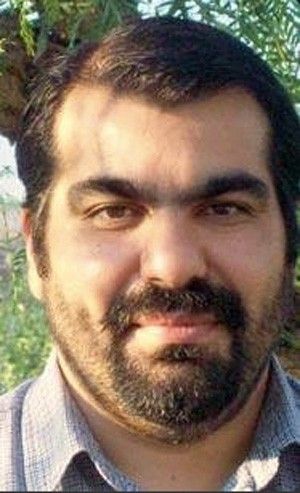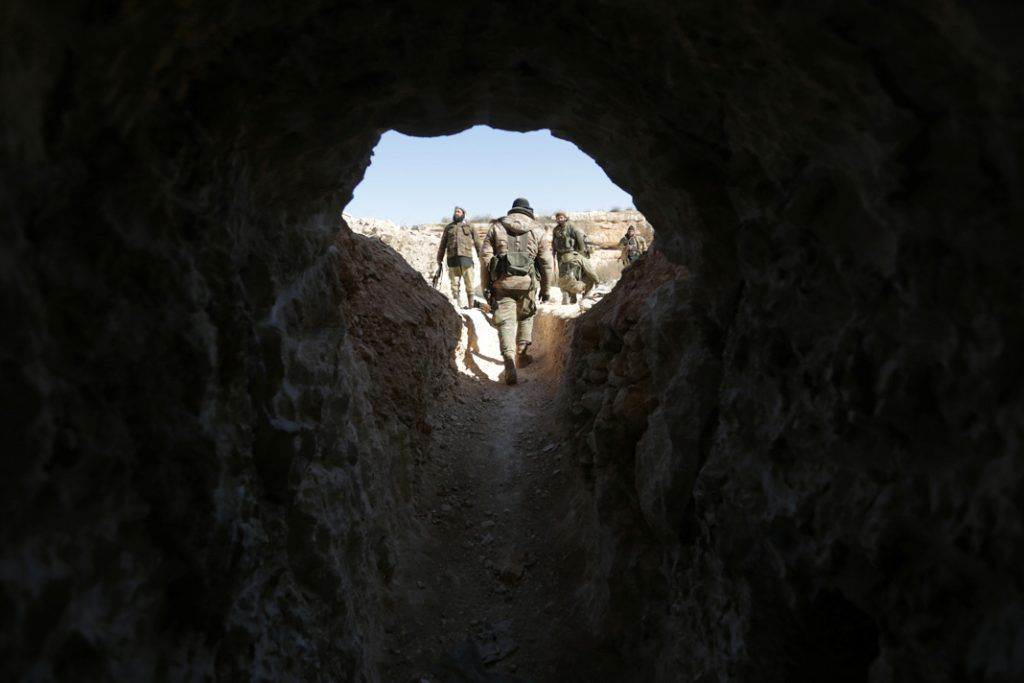Peyman Pejman
President Donald Trump is reportedly considering sending an as-yet-unspecified number of ground troops to northern Syria to combat the so-called Islamic State, delivering one of his main campaign promises to “defeat and destroy.”
During the campaign, candidateTrump said he would give his top military advisers 30 days from the time of taking office to give him a comprehensive military plan on how to combat and destroy ISIS.
Details of the proposed deployment are reportedly still being worked out. It has been suggested that the United States might initially deploy “a few hundred” engineering and force protection forces to complement the estimated 500 Special Forces already deployed in northern Syria coordinating air strikes against ISIS. The total number of forces to be deployed in northern Syria could reportedly go as high as 60,000.
Meanwhile, analysts have questioned the military and political soundness of the proposed move. Such deployments might generate strong reactions from regional actors directly involved in the conflict, namely Turkey, Syria, Iran, and Russia.
The first hurdle in complying with the president’s wish is to override a logistical problem. How would the proposed troops get into northern Syria? The easiest option, from the perspective of US military operators, would be through Iraq. But the United States currently has around 6,000 troops in that country, the maximum allowed under bilateral defense agreements between Baghdad and Washington.
The second best option would be to deploy them from Turkey. The United States already maintains around 2,500 military personnel at two military bases in Izmir and Incirlik, with the latter used as the primary base for coordinating and carrying out attacks against ISIS.

“Turkey has concerns in allowing a massive deployment of US troops,” says Turkish political analyst Dr. Serhat Erkmen, at Ahi Evran University. “How many troops will come in, from where they will come, what kinds of armaments do they want to bring?”
Ultimately, says Erkmen, Turkey’s trump card in negotiating with the United States is “the YPG card,” referring to the mainly Kurdish militia group in northern Iraq that has been credited with most of the fighting against ISIS around Raqqa, ISIS’s self-proclaimed capital in Syria. Turkey considers YPG an extension of the Kurdish Workers Party (PKK), a Kurdish-Turkish group fighting for autonomy from Turkey.
“Turkey will demand that the US does not cooperate with or arm the YPG,” says Erkmen, fearing that the Kurdish troops will use the arms and training to fight for an independent Kurdish state along the Syria-Iraq border.
The topic was reportedly one of the main items on the agenda of discussions with Turkish officials in the recent trips to the country by the Director of Central Intelligence Agency, Michael Pompeo, and Chairman of the Joint Chiefs, Gen. Joseph Dunford. Some media reports have indicated that the Americans have given such promises to Ankara with assurance in billions of dollars in military and financial aid to the government of President Recep Tayyip Erdogan.
Neighboring Iran has already voiced public objections to any infusion of US military forces in northern Syria.
Speaking on the Cable News Network (CNN), Iranian Foreign Minister, Javad Zarif, said the proposed move ignores the realities on the ground.
“I believe the presence of foreign troops in an Arab territory, against the wish of the government and the people of those territories, is in and of itself a recipe for these demagogues, these extremists, to rally behind, and to gain new support and to recruit new fighters who are disenfranchised youth, who have been deprived of their dignity because of certain policies that have been followed,” said Zarif.
“So we need to look at this from a comprehensive approach. We should not try to address one particular element and then augment the problem itself,” he added.
Some analysts believe the premise of Zarif’s statement that such a deployment would be “against the wish of the government and the people of those territories” might be faulty.

“Of course, he would say that publicly, but I am afraid this is one of the few things on which the Iranians don’t have much of a say,” says Henri Barkey, Director of the Middle East Program at the Woodrow Wilson Center in Washington DC.
“I don’t think they can tell the Syrians to say no to the Americans who will go after an organization that is anti-Syria, anti-Iranian,” he added.
Barkey argues that despite the Trump administration’s anti-Iran rhetoric, and the president’s profound and public opposition to the nuclear deal signed between Tehran and major European powers plus the United States, any military operation in northern Syria will be for limited purposes, and not a pre-launch exercise for regime change in Iran.
“Unlike the invasion of Iraq, this is not an invasion of Syria; this is an attack against Raqqa. It’s a much more limited operation. It’s not designed to overthrow Assad or change the regime in Syria. I don’t think the Iranians would see it [as a launching pad against their regime]. If you’re going to attack Iran, you’d do it from Iraq, not Syria,” he said.
Infusion of massive military force to take back Raqqa and dislodge or kill ISIS fighters, some analysts believe, will in the end fall short of the president’s goal of “defeating and destroying” ISIS.
“I believe those who are supporting Al-Nusra and Daesh today will fall victim to the same organizations in the future, because these organizations do not recognize borders, these organizations do not, cannot be contained in one country, one locality, or one region,” Zarif said during his interview with CNN, referring to ISIS by its Arabic acronym– Daesh—and to Al-Nusra, a group originally known as Jebhat Al Nusra (Front for Victory) that was once part of Al Qaeda.
“So we need to address it from that perspective, not from very short-sighted angle of trying to defeat your enemy with somebody else. I mean, the enemy of your enemy is no longer your friend. This is a concept that we need to recognize in a globalized world,” he added.
That is why some analysts believe Turkey should not be Trump’s only interlocutor in any such forthcoming operation.
“There needs to be full cooperation with powers in the region; there needs to be cooperation with Iran, Syria, Russia; otherwise, there will be problem in the region,” says Turkish analyst Dr. Erkman.
“If you define the objective as taking back Mosul [Iraq’s second largest city also in the hands of ISIS] and Raqqa, he [Trump] is not going to be able to define it as ‘defeating’ the Islamic State, because ISIS will disperse and part of it will rejoin Al Qaeda and ISIS will continue to exist,” says Barkey.
“Does that mean he will then go after Al Qaeda? We don’t know. This is not an administration that actually plans ahead,” he added.


